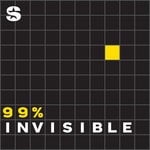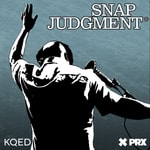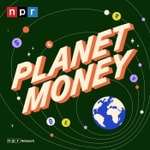Radiolab – Détails, épisodes et analyse
Détails du podcast
Informations techniques et générales issues du flux RSS du podcast.

Radiolab
WNYC Studios
Fréquence : 1 épisode/7j. Total Éps: 150

Classements récents
Dernières positions dans les classements Apple Podcasts et Spotify.
Apple Podcasts
Aucun classement récent disponible
Spotify
🇩🇪 Allemagne - science
04/08/2025#39→🇬🇧 Grande Bretagne - science
04/08/2025#8→🇬🇧 Grande Bretagne - trending
04/08/2025#122↗🇺🇸 États-Unis - trending
04/08/2025#54↗🇺🇸 États-Unis - top
04/08/2025#121↗🇺🇸 États-Unis - science
04/08/2025#2→🇬🇧 Grande Bretagne - science
03/08/2025#8→🇩🇪 Allemagne - science
03/08/2025#39↘🇬🇧 Grande Bretagne - trending
03/08/2025#147↗🇺🇸 États-Unis - top
03/08/2025#123↗
Liens partagés entre épisodes et podcasts
Liens présents dans les descriptions d'épisodes et autres podcasts les utilisant également.
See all- https://pledge.wnyc.org/support/otm
6789 partages
- https://radiolab.org/newsletter
606 partages
- https://members.radiolab.org/
302 partages
- http://facebook.com/radiolab
306 partages
- https://www.facebook.com/Radiolab
3 partages
- https://www.instagram.com/radiolab
288 partages
- https://www.instagram.com/loub747
4 partages
Qualité et score du flux RSS
Évaluation technique de la qualité et de la structure du flux RSS.
See allScore global : 73%
Historique des publications
Répartition mensuelle des publications d'épisodes au fil des années.
Octomom
Épisode 604
vendredi 27 septembre 2024 • Durée 33:57
A mile under the ocean, we get to watch an octopus perform a heroic act of heart and determination.
First aired back in 2020, this episode follows the story of an octopus living one mile under the ocean as she performs a heroic act of heart and determination.
In 2007, Bruce Robison’s robot submarine stumbled across an octopus settling in to brood her eggs. It seemed like a small moment. But as he went back to visit her, month after month, what began as a simple act of motherhood became a heroic feat that has never been equaled by any known species on Earth.
This episode was reported and produced by Annie McEwen.
Special thanks to Kim Fulton-Bennett and Rob Sherlock at the Monterey Bay Aquarium Research Institute.
Support Radiolab today at Radiolab.org/donate.
If you need more ocean in your life, check out the incredible Monterey Bay Aquarium live cams (especially the jellies!): www.montereybayaquarium.org/animals/live-cams
Here’s a pic of Octomom sitting on her eggs (© 2007 MBARI), Nov. 1, 2007.
We have some exciting news! In the “Zoozve” episode, Radiolab named its first-ever quasi-moon, and now it's your turn! Radiolab has teamed up with The International Astronomical Union to launch a global naming contest for one of Earth’s quasi-moons. This is your chance to make your mark on the heavens. Submit your name ideas now through September, or vote on your favorites starting in November: https://radiolab.org/moon
Sign-up for our newsletter!! It includes short essays, recommendations, and details about other ways to interact with the show. Sign up (https://radiolab.org/newsletter)!
Radiolab is supported by listeners like you. Support Radiolab by becoming a member of The Lab (https://members.radiolab.org/) today.
Follow our show on Instagram, Twitter and Facebook @radiolab, and share your thoughts with us by emailing radiolab@wnyc.org.
Leadership support for Radiolab’s science programming is provided by the Gordon and Betty Moore Foundation, Science Sandbox, a Simons Foundation Initiative, and the John Templeton Foundation. Foundational support for Radiolab was provided by the Alfred P. Sloan Foundation.
A Little Pompeiian Fish Sauce Goes a Long Way
Épisode 603
vendredi 20 septembre 2024 • Durée 39:18
Today we follow a sleuth who has spent over a decade working to solve an epic mystery hiding in plain historical sight: did anyone survive the eruption of Mount Vesuvius in 79AD?
Tired of hearing the conventional narrative that every Pompeiian perished without any evidence to back it up, Classicist Steven Tuck decides to look into it himself. Although he is nearly two millennia late to ground zero, he uses all the available evidence to reimagine the disaster from the perspective of the people on the ground. Could anyone have survived the volcano? If they did, could they have survived what came after that: earthquakes, tsunamis, pumice stones hurtling like missiles from the sky? If someone did survive, what happened to them after that??! To find out we have to think, feel and possibly even eat like Ancient Romans.
An against-all-odds story of a disaster without warning, a mass disappearance without a trace, and oddly, a particularly stinky fish sauce, care of special guest Chef Samin Nosrat.
We have some exciting news! In the “Zoozve” episode, Radiolab named its first-ever quasi-moon, and now it's your turn! Radiolab has teamed up with The International Astronomical Union to launch a global naming contest for one of Earth’s quasi-moons. This is your chance to make your mark on the heavens. Submit your name ideas now through September, or vote on your favorites starting in November: https://radiolab.org/moon
EPISODE CREDITS:
Reported by - Latif Nasser
with help from - Annie McEwen and Ekedi Fausther-Keys
Produced by - Annie McEwen
Recording help from - Adam Howell
Voice acting by - Brandon Dalton
Original music and sound design contributed by - Jeremy Bloom and Annie McEwen
with mixing help from - Arianne Wack
and Hosting Helo from - Sarah Qari
Fact-checking by - Emily Krieger
and Edited by - Pat Walters
EPISODE CITATIONS:
Recipes -
Ancient Roman recipe for garum (https://zpr.io/gMNmXcNZUhZg).
Read more about garum here (https://zpr.io/4gh939TxCRpZ) or in Sally Grainger’s book The Story of Garum: Fermented Fish Sauce and Salted Fish in the Ancient World
Articles -
On Pliny's letters and the eruption including a reanalysis of the date of the eruption, Pedar Foss, Pliny and the Eruption of Vesuvius (https://zpr.io/kQH49ttRawNZ)
Documentaries -
A recent PBS documentary, Pompeii: The New Dig (https://zpr.io/LV9sWKc4vbQ8) including segments on Steven Tuck’s work.
Photos and Maps -
To trace building locations or names of home owners as well as photos of every square inch of Pompeii: https://pompeiiinpictures.com/pompeiiinpictures/
From Steven Tuck: “If someone has an otherwise unbeatable case of insomnia, my preliminary publication of findings is in Reflections: Harbour City Deathscapes in Roman Italy and Beyond” (https://zpr.io/3pETS53A9CtF)
Brief description of the casts and casting process of the remains found at Pompeii: https://pompeiisites.org/en/pompeii-map/analysis/the-casts/
Maps of the Ancient Roman world that you can use to trace some of the land and sea routes discussed in the episode: https://orbis.stanford.edu
Signup for our newsletter! It includes short essays, recommendations, and details about other ways to interact with the show. Sign up (https://radiolab.org/newsletter)!
Radiolab is supported by listeners like you. Support Radiolab by becoming a member of The Lab (https://members.radiolab.org/) today.
Follow our show on Instagram, X, formerly Twitter and Facebook @radiolab, and share your thoughts with us by emailing radiolab@wnyc.org.
Leadership support for Radiolab’s science programming is provided by the Gordon and Betty Moore Foundation, Science Sandbox, a Simons Foundation Initiative, and the John Templeton Foundation. Foundational support for Radiolab was provided by the Alfred P. Sloan Foundation.
Lose Lose
Épisode 588
vendredi 19 juillet 2024 • Durée 31:32
To celebrate the imminent start of the Summer Olympic Games in Paris, France we have an episode originally reported in 2016. No matter what sport you play, the object of the game is to win. And that’s hard enough to do. But we found a match where four top athletes had to do the opposite in one of the most high profile matches of their careers. Thanks to a quirk in the tournament rules, their best shot at winning was … to lose.
This week, in honor of the 2024 Summer Olympics, we are rerunning a story from 2016 in which we scrutinize the most paradoxical and upside down badminton match of all time. A match that dumbfounded spectators, officials, and even the players themselves. And it got us to wondering … what would sports look like if everyone played to lose?
Special thanks to Aparna Nancherla, Mark Phelan, Yuni Kartika, Greysia Polii, Joy Le Li, Mikyoung Kim, Stan Bischof, Vincent Liew, Kota Morikowa, Christ de Roij and Haeryun Kang.
We have some exciting news! In the “Zoozve” episode, Radiolab named its first-ever quasi-moon, and now it's your turn! Radiolab has teamed up with The International Astronomical Union to launch a global naming contest for one of Earth’s quasi-moons. This is your chance to make your mark on the heavens. Submit your name ideas now through September, or vote on your favorites starting in November: https://radiolab.org/moon
Our newsletter comes out every Wednesday. It includes short essays, recommendations, and details about other ways to interact with the show. Sign up (https://radiolab.org/newsletter)!
Radiolab is supported by listeners like you. Support Radiolab by becoming a member of The Lab (https://members.radiolab.org/) today.
Follow our show on Instagram, Twitter and Facebook @radiolab, and share your thoughts with us by emailing radiolab@wnyc.org.
Leadership support for Radiolab’s science programming is provided by the Gordon and Betty Moore Foundation, Science Sandbox, a Simons Foundation Initiative, and the John Templeton Foundation. Foundational support for Radiolab was provided by the Alfred P. Sloan Foundation.
The Theater of David Byrne's Mind
Épisode 473
vendredi 7 octobre 2022 • Durée 43:12
It all started when the rockstar David Byrne did a Freaky-Friday-like body-swap with a Barbie Doll. That’s what inspired him — along with his collaborator Mala Gaonkar — to transform a 15,000 square-foot warehouse in Denver, Colorado into a brainy funhouse known as the Theater of the Mind.
This episode, co-Host Latif Nasser moderates a live conversation between Byrne and Neuroscientist Thalia Wheatley at the Denver Center for the Performing Arts. The trio talk about how we don’t see what we think we see, don’t hear what we think we hear, and don’t know what we think we know, but also how all that… might actually be a good thing.
Special thanks to Charlie Miller and everyone else at the Denver Center for the Performing Arts, Emily Simoness and everyone else at the Arbutus Foundation, Boen Wang, and Heather Radke.
Episode Credits:
Produced by Suzie Lechtenberg
CITATIONS
Theater of the mind website: https://theateroftheminddenver.com/
Our newsletter comes out every Wednesday. It includes short essays, recommendations, and details about other ways to interact with the show. Sign up (https://radiolab.org/newsletter)!Radiolab is supported by listeners like you. Support Radiolab by becoming a member of The Lab(https://members.radiolab.org/) today.Follow our show on Instagram, Twitter and Facebook @radiolab, and share your thoughts with us by emailing radiolab@wnyc.org.
Leadership support for Radiolab’s science programming is provided by the Gordon and Betty Moore Foundation, Science Sandbox, a Simons Foundation Initiative, and the John Templeton Foundation. Foundational support for Radiolab was provided by the Alfred P. Sloan Foundation.
How to Save a Life
Épisode 587
vendredi 12 juillet 2024 • Durée 47:52
We get it… the world feels too bleak and too big for you to make a difference. But there is one thing - one simple tangible thing - you can do to make all the difference in the world to someone, possibly even a loved one, at arguably the worst moment of their life.
Statistics show that 1 out of every 5 people on earth will die of heart failure. Cardiac arrests can happen anywhere, anytime - in your bed, on the street, on your honeymoon. And every minute that passes after your heart stops beating, your chances of surviving drop dramatically. For all the strides modern medicine has made in treating heart conditions, the ambulance still doesn’t always make it in time. The only person who can keep you alive during those crucial first few minutes is a stranger, a neighbor, your partner, anyone nearby willing to perform CPR. Yet most of us don’t do anything.
Join Radiolab host Latif Nasser, ER doctor and Radiolab contributor Avir Mitra, and TikTok stars Dr. and Lady Glaucomflecken, as we discover the fascinating science of cardiac arrest, hear a true and harrowing story of a near-death experience, and hunt down the best place to die (hint… it’s not a hospital). Plus, with the help of the American Red Cross and the Bee Gees, you, yes you, will learn how to do hands-only CPR!
Special thanks to Will and Kristin Flannery of course..Check out the Glaucomflekens own podcast “Knock Knock, Hi!” (KKH Pod), the Greene Space here at WNYC’s home in NYC… first of all Jennifer Sendrow, who really made it happened and helped us make it work at basically every stage of the process .. and the rest of the Greene Space crew: Carlos Cruz Figueroa, Chase Culpon, Ricardo Fernández, Jessica Lowery, Skye Pallo Ross, Eric Weber, Ryan Andrew Wilde, and Andrew Yanchyshyn.
Also, thank you to the Red Cross for helping us make this happen and providing the CPR dummies, and all the people we had there doing the training: Ashley London, Jeanette Nicosia, Charlene Yung, Jacob Stebel, Tye Morales, Anna Stacy. Aditya Shekhar.
We have some exciting news! In the “Zoozve” episode, Radiolab named its first-ever quasi-moon, and now it's your turn! Radiolab has teamed up with The International Astronomical Union to launch a global naming contest for one of Earth’s quasi-moons. This is your chance to make your mark on the heavens. Submit your name ideas now through September, or vote on your favorites starting in November: https://radiolab.org/moon
EPISODE CREDITS:
Reported by - Avir Mitra
with mixing help from - Jeremy Bloom
And Fact-checking by - Natalie Middleton
CITATIONS:
Please put any supporting materials you think our audience would find interesting or useful below in the appropriate broad categories.
Videos:
Check out the whole show in its full glory at the website for WNYC’s Greene Space: https://www.thegreenespace.org/
Will Flannery’s Youtube channel, Dr. Glaucomflecken: https://www.youtube.com/@DGlaucomflecken
Music:
The perfect playlist for a CPR Emergency
Classes:
If you’d like to sign up to learn CPR, and get certified, the Red Cross provides classes all across the country and online, just go to https://www.redcross.org/take-a-class, to learn more
Our newsletter comes out every Wednesday. It includes short essays, recommendations, and details about other ways to interact with the show. Sign up (https://radiolab.org/newsletter)!
Radiolab is supported by listeners like you. Support Radiolab by becoming a member of The Lab (https://members.radiolab.org/) today.
Follow our show on Instagram, Twitter and Facebook @radiolab, and share your thoughts with us by emailing radiolab@wnyc.org.
Leadership support for Radiolab’s science programming is provided by the Gordon and Betty Moore Foundation, Science Sandbox, a Simons Foundation Initiative, and the John Templeton Foundation. Foundational support for Radiolab was provided by the Alfred P. Sloan Foundation.
Happy Birthday, Good Dr. Sacks
Épisode 586
vendredi 5 juillet 2024 • Durée 23:58
First aired back in 2013, we originally released this episode to celebrate the 80th birthday of one of our favorite human beings, Oliver Sacks. To celebrate, his good friend, and our former co-host Rober Krulwich, asks the good doctor to look back, and explain how thousands of worms and a motorbike accident led to a brilliant writing career.
We have some exciting news! In the “Zoozve” episode, Radiolab named its first-ever quasi-moon, and now it's your turn! Radiolab has teamed up with The International Astronomical Union to launch a global naming contest for one of Earth’s quasi-moons. This is your chance to make your mark on the heavens. Submit your name ideas now through September, or vote on your favorites starting in November: https://radiolab.org/moon.
Our newsletter comes out every Wednesday. It includes short essays, recommendations, and details about other ways to interact with the show. Sign up (https://radiolab.org/newsletter)!
Radiolab is supported by listeners like you. Support Radiolab by becoming a member of The Lab (https://members.radiolab.org/) today.
Follow our show on Instagram, Twitter and Facebook @radiolab, and share your thoughts with us by emailing radiolab@wnyc.org.
Leadership support for Radiolab’s science programming is provided by the Gordon and Betty Moore Foundation, Science Sandbox, a Simons Foundation Initiative, and the John Templeton Foundation. Foundational support for Radiolab was provided by the Alfred P. Sloan Foundation.
The Alford Plea
Épisode 585
vendredi 28 juin 2024 • Durée 53:49
In 1995, a tragic fire in Pittsburgh set off a decades-long investigation that sent Greg Brown Jr. to prison. But, after a series of remarkable twists, Brown found himself contemplating a path to freedom that involved a paradoxical plea deal—one that peels back the curtain on the criminal justice system and reveals it doesn’t work the way we think it does.
Special thanks to John Lentini, Amanda Gillooly, Fred Buckner, Debbie Steinmeyer, Marissa Bluestine, Jason Hazlewood, Meredith Kennedy, Kristen Vermilya, Joshua Ceballos and Lauren Cooperman.
We have some exciting news! In the “Zoozve” episode, Radiolab named its first-ever quasi-moon, and now it's your turn! Radiolab has teamed up with The International Astronomical Union to launch a global naming contest for one of Earth’s quasi-moons. This is your chance to make your mark on the heavens. Submit your name ideas now through September, or vote on your favorites starting in November: https://radiolab.org/moon
EPISODE CREDITS:
Reported by - Peter Smith and Matt Kielty
Produced by - Matt Kielty
Original music and sound design contributed by - contributed by Matt Kielty
with mixing help from - Arianne Wack
Fact-checking by - Emily Krieger
and Edited by - Becca Bressler
EPISODE CITATIONS:
Magazine Articles -
More work by Peter Andrey Smith (https://zpr.io/wXfYn5GMM7dN) for Undark Magazine
The Sniff Test (https://zpr.io/xkDzHsrrpFeR) for Science by Peter Andrey Smith
Books -
"Why the Innocent Plead Guilty and the Guilty Go Free" (https://zpr.io/wF8KtSFKTmwi), by Judge Jed S Rakoff
“Smoke but No Fire” (https://zpr.io/C3NceBFmhJk4) by Jessica S. Henry
“Punishment Without Trial” (https://zpr.io/AbqT5u5eqSy5) by Carissa Byrne Hessick
** The transcript of Greg Brown Jr.’s plea from 2022 has yet to be made public.
Signup for the Radiolab Newsletter!! It includes short essays, recommendations, and details about other ways to interact with the show. Sign up (https://radiolab.org/newsletter)!
Radiolab is supported by listeners like you. Support Radiolab by becoming a member of The Lab (https://members.radiolab.org/) today.
Follow our show on Instagram, X (formerly Twitter) and Facebook @radiolab, and share your thoughts with us by emailing radiolab@wnyc.org.
Leadership support for Radiolab’s science programming is provided by the Gordon and Betty Moore Foundation, Science Sandbox, a Simons Foundation Initiative, and the John Templeton Foundation. Foundational support for Radiolab was provided by the Alfred P. Sloan Foundation.
Birdie in the Cage
Épisode 584
vendredi 21 juin 2024 • Durée 44:18
People have been doing the square dance since before the Declaration of Independence. But does that mean it should be THE American folk dance? That question took us on a journey from Appalachian front porches, to dance classes across our nation, to the halls of Congress, and finally a Kansas City convention center. And along the way, we uncovered a secret history of square dancing that made us see how much of our national identity we could stuff into that square, and what it means for a dance to be of the people, by the people, and for the people.
Special thanks to Jim Mayo, Claude Fowler, Paul Gifford, Jim Maczko, Jim Davis, Paul Moore, Jack Pladdys, Mary Jane Wegener, Kinsey Brooke and Connie Keener.
We have some exciting news! In this “Zoozve” episode, Radiolab named its first-ever quasi-moon, and now it's your turn! Radiolab has teamed up with The International Astronomical Union to launch a global naming contest for one of Earth’s quasi-moons. This is your chance to make your mark on the heavens. Submit your name ideas now through September, or vote on your favorites starting in November: https://radiolab.org/moon
Subscribe to our newsletter!! It includes short essays, recommendations, and details about other ways to interact with the show. Sign up (https://radiolab.org/newsletter)!
Radiolab is supported by listeners like you. Support Radiolab by becoming a member of The Lab (https://members.radiolab.org/) today.
Follow our show on Instagram, Twitter and Facebook @radiolab, and share your thoughts with us by emailing radiolab@wnyc.org.
Leadership support for Radiolab’s science programming is provided by the Gordon and Betty Moore Foundation, Science Sandbox, a Simons Foundation Initiative, and the John Templeton Foundation. Foundational support for Radiolab was provided by the Alfred P. Sloan Foundation.
Aphantasia
Épisode 583
vendredi 14 juin 2024 • Durée 34:43
Close your eyes and imagine a red apple. What do you see? Turns out there’s a whole spectrum of answers to that question and Producer Sindhu Gnanasambandan is on one far end. In this episode, she explores what it means to see – and not see – in your mind.
Special thanks to Kim Nederveen Pieterse, Nathan Peereboom, Lizzie Peabody, Kristin Lin, Jo Eidman, Mark Nakhla, Andrew Leland, Brian Radcliffe, Adam Zeman, John Green, Craig Venter, Dustin Grinnell, and Soraya Shockley.
We have some exciting news! In this “Zoozve” episode, Radiolab named its first-ever quasi-moon, and now it's your turn! Radiolab has teamed up with The International Astronomical Union to launch a global naming contest for one of Earth’s quasi-moons. This is your chance to make your mark on the heavens. Submit your name ideas now through September, or vote on your favorites starting in November: https://radiolab.org/moon
EPISODE CREDITS:
Reported by - Sindhu Gnanasambandan
Produced by - Sindhu Gnanasambandan
with help from - Annie McEwen
Original music and sound design contributed by - Dylan Keefe
with mixing help from - Jeremy Bloom and Arianne Wack
Fact-checking by - Natalie Middleton
and Edited by - Pat Walters
Sign up for our newsletter!! It includes short essays, recommendations, and details about other ways to interact with the show. Sign up (https://radiolab.org/newsletter)!
Radiolab is supported by listeners like you. Support Radiolab by becoming a member of The Lab (https://members.radiolab.org/) today.
Follow our show on Instagram, Twitter and Facebook @radiolab, and share your thoughts with us by emailing radiolab@wnyc.org.
Leadership support for Radiolab’s science programming is provided by the Gordon and Betty Moore Foundation, Science Sandbox, a Simons Foundation Initiative, and the John Templeton Foundation. Foundational support for Radiolab was provided by the Alfred P. Sloan Foundation.
Argentine Invasion
Épisode 582
vendredi 31 mai 2024 • Durée 21:54
From a suburban sidewalk in southern California, Jad and Robert witness the carnage of a gruesome turf war. Though the tiny warriors doing battle clock in at just a fraction of an inch, they have evolved a surprising, successful, and rather unsettling strategy of ironclad loyalty, absolute intolerance, and brutal violence.
David Holway, an ecologist and evolutionary biologist from UC San Diego, takes us to a driveway in Escondido, California where a grisly battle rages. In this quiet suburban spot, two groups of ants are putting on a chilling display of dismemberment and death. According to David, this battle line marks the edge of an enormous super-colony of Argentine ants. Think of that anthill in your backyard, and stretch it out across five continents.
Argentine ants are not good neighbors. When they meet ants from another colony, any other colony, they fight to the death, and tear the other ants to pieces. While other kinds of ants sometimes take slaves or even have sex with ants from different colonies, the Argentine ants don’t fool around. If you’re not part of the colony, you’re dead.
According to evolutionary biologist Neil Tsutsui and ecologist Mark Moffett, the flood plains of northern Argentina offer a clue as to how these ants came to dominate the planet. Because of the frequent flooding, the homeland of Linepithema humile is basically a bootcamp for badass ants. One day, a couple ants from one of these families of Argentine ants made their way onto a boat and landed in New Orleans in the late 1800s. Over the last century, these Argentine ants wreaked havoc across the southern U.S. and a significant chunk of coastal California.
In fact, Melissa Thomas, an Australian entomologist, reveals that these Argentine ants are even more well-heeled than we expected - they've made to every continent except Antarctica. No matter how many thousands of miles separate individual ants, when researchers place two of them together - whether they're plucked from Australia, Japan, Hawaii ... even Easter Island - they recognize each other as belonging to the same super-colony.
But the really mind-blowing thing about these little guys is the surprising success of their us-versus-them death-dealing. Jad and Robert wrestle with what to make of this ant regime, whether it will last, and what, if anything, it might mean for other warlike organisms with global ambitions.
We have some exciting news! In this “Zoozve” episode, Radiolab named its first-ever quasi-moon, and now it's your turn! Radiolab has teamed up with The International Astronomical Union to launch a global naming contest for one of Earth’s quasi-moons. This is your chance to make your mark on the heavens. Submit your name ideas now through September, or vote on your favorites starting in November: https://radiolab.org/moon
Sign up for our newsletter. It includes short essays, recommendations, and details about other ways to interact with the show. Sign up (https://radiolab.org/newsletter)!
Radiolab is supported by listeners like you. Support Radiolab by becoming a member of The Lab (https://members.radiolab.org/) today.
Follow our show on
Instagram, Twitter, and, Facebook
@radiolab, and share your thoughts with us by emailing radiolab@wnyc.org.
Leadership support for Radiolab’s science programming is provided by the Gordon and Betty Moore Foundation, Science Sandbox, a Simons Foundation Initiative, and the John Templeton Foundation. Foundational support for Radiolab was provided by the Alfred P. Sloan Foundation.









